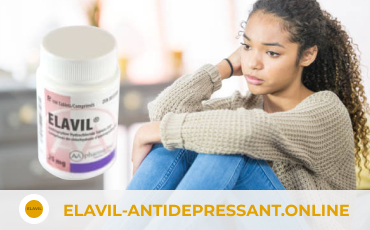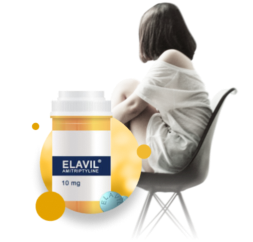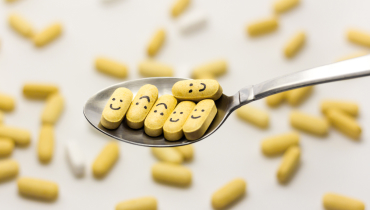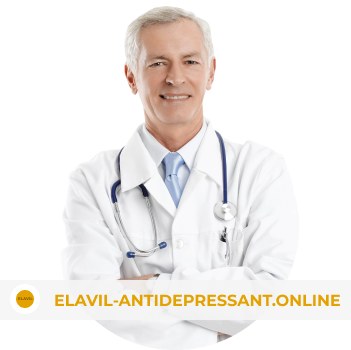Amitriptyline acts on a wide range of receptors
Amitriptyline is a tricyclic antidepressant that acts on the metabolism of mediator monoamines, serotonin, norepinephrine, and dopamine.
The sedative effect of the drug is provided by its effect on H1-histamine receptors.
But at the same time it has a cholinolytic and adrenoblocking effect, and because of this the side effects of the drug appear.
Amitriptyline is not a first-line drug for the treatment of depression because of the large number of side effects.
The drug’s cholinolytic action is responsible for these side effects:
- dry mouth
- nausea
- constipation
- urinary disorders (especially in patients with adenoma of the prostate)
- increased intraocular pressure in glaucoma patients
- intraventricular cardiac conduction abnormalities
The adrenoblocking effect of Amitriptyline causes orthostatic collapse – a sharp drop in blood pressure when the body position changes.
The doctor always warns the patient that the drug has side effects, and explains how to reduce them, what medications are needed to stop them.
If unwanted reactions occur during therapy, including manifestations that have not been stipulated, you should immediately contact the doctor.

The drug has a number of contraindications
- severe atherosclerosis of the heart vessels, a history of heart attacks, heart failure, hypertension
- liver and kidney function impairment
- prostatic hyperplasia
- bladder atony
- peptic ulcer in the acute phase
- paralytic bowel obstruction
- pylorostenosis
- blood diseases
- therapy with monoamine oxidase inhibitors within the previous 2 weeks
- individual intolerance
- pregnancy and lactation
- under 6 years of age (12 years for injections)
Amitriptyline is prescribed when other drugs do not work
The latest generations of antidepressants have significantly fewer side effects and contraindications, so they are first-line drugs for treating depression.
But when these drugs do not work, the psychiatrist may prescribe Amitriptyline. This is usually for acute conditions.
Amitriptyline is available in 25 mg tablet form as well as in 10 mg/ml solutions, which allows it to be administered intravenously in situations that require immediate action.
The drug is prescribed for severe depressive states, reactive and endogenous. It can also be used in treatment:
- post-traumatic stress disorder
- generalized anxiety disorder
- obsessive-compulsive disorders
- eating disorders (anorexia, bulimia) – allows to correct appetite
In my practice, the drug gives good effect in therapy of patients in alcohol withdrawal period, especially with psychomotor agitation, disturbed sleep. In this case Amitriptyline is used temporarily to relieve the painful condition.
Amitriptyline therapy is prescribed and monitored by a doctor
Treatment with the drug has a cumulative effect. Usually therapy begins with minimal doses, usually 25-50 mg, gradually the daily amount of the drug can be brought up to 150-200 mg. After achieving a slender therapeutic effect, the dosage is reduced to the lowest effective dose.
The duration of treatment, withdrawal pattern, and combination with other drugs are determined by the physician based on the results of examination and feedback from the patient.

Amitriptyline is CATEGORILY incompatible with alcohol
The drug has a sedative effect on the CNS, and alcohol is also a depressant of the nervous system, including the respiratory and vasomotor centers. When combining these substances any conditions are possible: psychosis with hallucinations and delirium, and depression of consciousness, up to coma, and respiratory arrest.
No antidepressant, especially as powerful as Amitriptyline, can be combined with alcohol. This is prescribed in the instructions, and the doctor must additionally discuss this point with the patient.
If the therapy is under the control of a doctor, Amitriptyline is not addictive
In some countries, such as Ukraine, Amitriptyline is included in the list of narcotic drugs. This is due to the assumption that it is addictive.
But this can happen only in the case of uncontrolled use. If the doctor prescribes and regulates the therapy, neither withdrawal syndrome, nor dependence in the patient will not occur.












I received the package a few days ago. Thank you so very much! Everything was perfect. I do appreciate your great service and will most definitely order again from you. I'm glad to say that I can recommend you with total confidence. Thanks
Yeah! The package arrived very quickly. Thanks!
Everything is fine! Thanks!